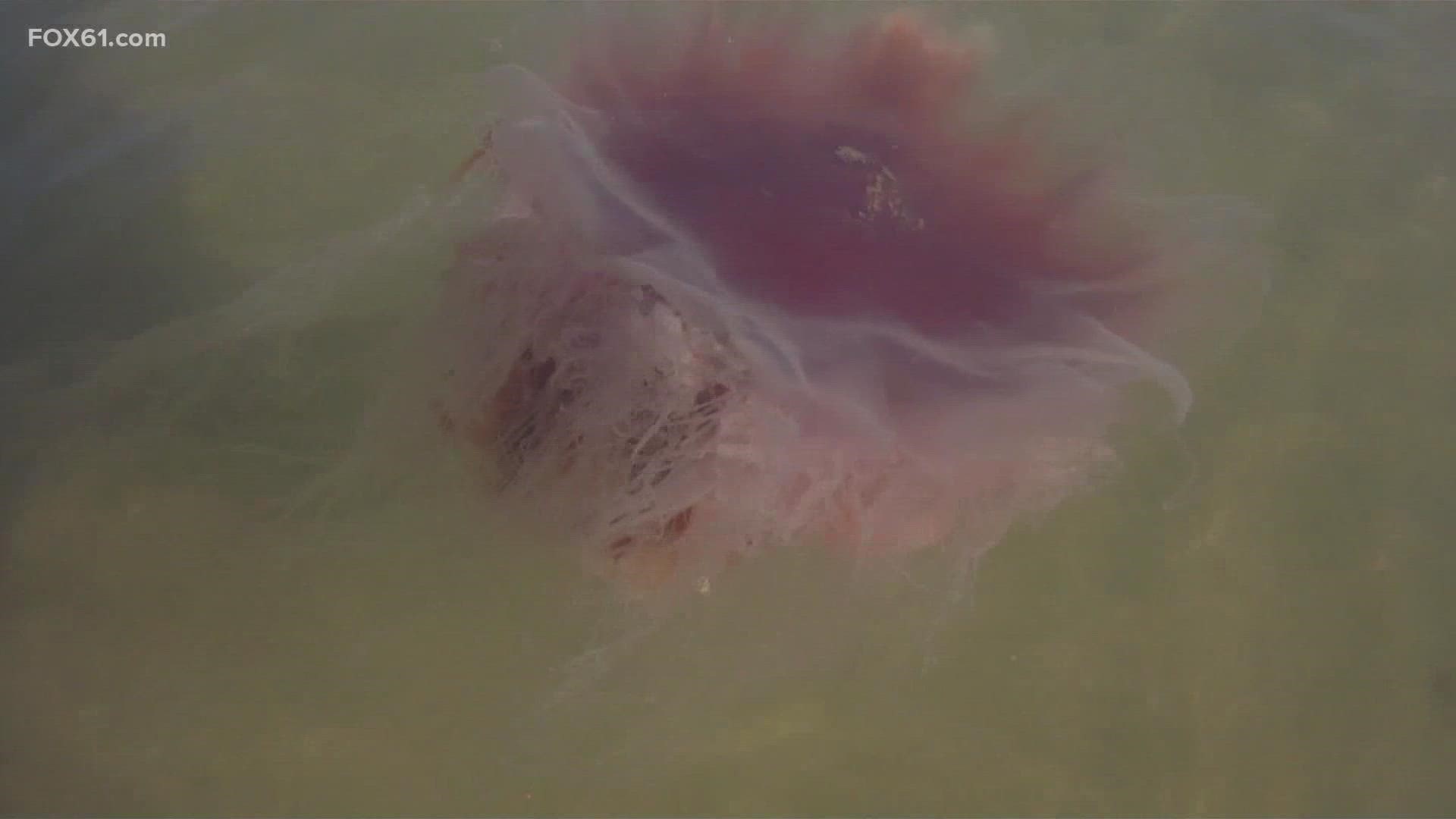MADISON, Conn. — The beach is a popular place this time of year, but swimmers have been running into more and more jellyfish in recent days.
It’s no coincidence.
This is the time of summer when jellyfish are very common in the sound, not just because the water is so warm. It’s their breeding season.
“They are more common in August and in January; they have two breeding seasons. Most people aren’t swimming in January, so they never encounter them, but in August, that’s when most people run into jellyfish,” according to Ranger Russ, who runs the Meigs Point Nature Center at Hammonasset Beach State Park in Madison.
Lifeguard supervisor Elyse Boothroyd said it’s the most common issue that comes up this time of year.
“We’ll take good care of you, hydrocortisone cream or spray, and then you’re all set,” Boothroyd said, adding that lifeguards at Hammonasset dealt with six stings in about two hours Monday.
There are three kinds of jellyfish in the Sound.
Moon and comb jellies do not sting. They are small and clear.
“When people run into them, it’s really not an issue,” Ranger Russ said.
The one to keep an eye out for is the lion’s mane jellyfish, the largest jelly in the world. In the Sound, they can be up to 14 inches across. The concern isn’t just the jellyfish, but its tentacles.
“With wave action, which we don’t have a lot of today, it can break their tentacles off. You can still be stung by a tentacle when it’s separated from the jellyfish. The jellyfish doesn’t have any control over its ability to sting. I describe it as a loaded harpoon which has a little trigger. Whenever anything touches that trigger it fires it off. The jellyfish doesn’t control that. If the tentacle is broken off, or even if the jellyfish is dead, those stingers will still fire off,” Ranger Russ told FOX61.
The lion’s mane typically has a reddish or pink color to them in the water. When they wash up on the beach, they turn brown.
“You are going to feel starting with a tingling, it does sting like a bee sting. But it’s not something that’s not going to be extremely painful unless you get a lot of stingers in you,” Ranger Russ said.
If you are stung, it’s suggested you rub sand on the sting, which can scrape the tentacles away. Warm water can relieve it too.
The weather and tides play a role in the number of jellyfish in the water. They tend to go in and out with the tide, and any onshore wind can push them in too.
Despite hiring concerns earlier in the summer, the lifeguard stands at Hammonasset are fully staffed.
“We have 31 positions filled, and that’s the most that you can get, so Hammonasset is one of the parks that is fully staffed with lifeguards,” Boothroyd said.
Ryan Breton is a meteorologist at FOX61 News. He can be reached at rbreton@fox61.com. Follow him on Facebook, Twitter and Instagram.
---
Have a story idea or something on your mind you want to share? We want to hear from you! Email us at newstips@fox61.com
---
HERE ARE MORE WAYS TO GET FOX61 NEWS
Download the FOX61 News APP
iTunes: Click here to download
Google Play: Click here to download
Stream Live on ROKU: Add the channel from the ROKU store or by searching FOX61.
Steam Live on FIRE TV: Search ‘FOX61’ and click ‘Get’ to download.

